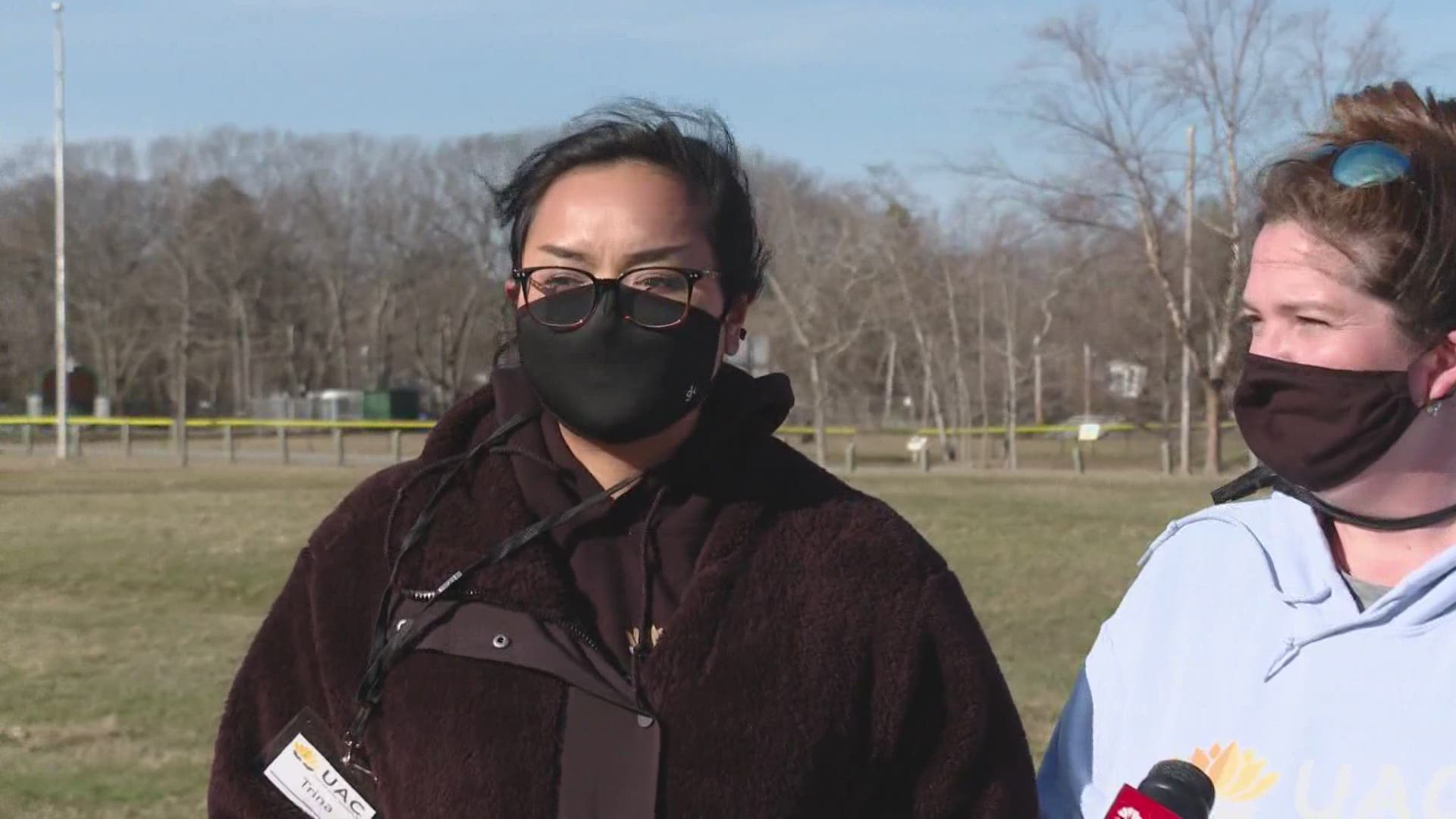WASHINGTON, D.C., USA — Editor's Note: The video above aired on March 30, 2021.
Maine Sens. Susan Collins and Angus King on Thursday voted to pass a bill to combat anti-Asian hate crimes, which have increased amid the coronavirus pandemic.
All but one senator, Republican Josh Hawley of Missouri, voted to pass the COVID-19 Hate Crimes Act.
The bill would direct the Justice Department to expedite the review of coronavirus-related hate crimes against Asian Americans and would provide support to state and local law enforcement responding to these hate crimes.
The bill is the most substantive congressional response to what has been an alarming rise in racist sentiment against Asian Americans, fueled in part by derogatory language about the virus’ origins in China. Donald Trump, while president, played into that narrative with derisive nicknames for the virus. The moment harks back to earlier eras of racism against Chinese Americans, Japanese Americans, and others of Asian heritage in the U.S.
Collins co-authored an amended version of the bill with Sen. Mazie Hirono, D-Hawaii, which updated the bill's language “to broaden bipartisan support while retaining the purpose of the bill,” Collins’ office said Wednesday.
The amended bill strongly condemns the hate crimes targeting Asian Americans and Pacific Islanders (AAPIs), helps the DOJ focus its resources on hate crimes amid the pandemic, and incorporates the Jabara-Heyer NO HATE Act, which provides state and local governments and law enforcement agencies with additional tools and resources to understand, identify, and report hate crimes.
Collins spoke on the Senate floor before the final vote on Thursday and urged her colleagues to pass the amended legislation she and Hirono worked on.
"Crimes motivated by bias against race, national origin, or other characteristics simply cannot be tolerated," Collins said on the floor Thursday. "Our amendment both denounces these acts and marshals additional resources toward addressing and stopping these despicable crimes."
“Senator Collins, I really appreciate your work on this bill. We would not be here without your support," Hirono said on the Senate floor Thursday before the vote.
King, an Independent who caucuses with the Democrats, said in a statement after the vote on Thursday that he's "proud to stand alongside an overwhelming bipartisan majority of the U.S. Senate to address this horrific behavior.”
“We’ve seen it time and time again – when Americans face a crisis, they overcome it by working together and supporting one another. This mindset has been fundamental to our national response to the coronavirus pandemic. Unfortunately, some misguided people have rejected this common effort, instead embracing bigotry and harassing or attacking our Asian American friends and neighbors,” King said. “This increase in racially-motivated violence is unacceptable and un-American."
A study by the Center for the Study of Hate and Extremism at California State University, San Bernardino showed anti-Asian hate crimes in 16 of the largest U.S. cities rose by nearly 150 percent last year.
Nearly 3,800 incidents have been reported to Stop AAPI Hate, a California-based reporting center for AAPIs, and its partner groups, since March 2020. That includes the February death of an 84-year-old man who was pushed to the ground near his home in San Francisco; a young family that was attacked in a Texas grocery store last year; and deadly shootings last month in Atlanta, where six of the victims were of Asian descent.
The names of the six women killed in Georgia are listed in the bill, which passed the Senate on a 94-1 vote. The House is expected to consider a similar bill in the coming weeks.
“These unprovoked, random attacks and incidents are happening in supermarkets, on our streets, in takeout restaurants -- basically, wherever we are,” Hirono said. She said the attacks are “a predictable and foreseeable consequence” of racist and inflammatory language that has been used against Asians during the pandemic, including slurs used by former President Donald Trump.

